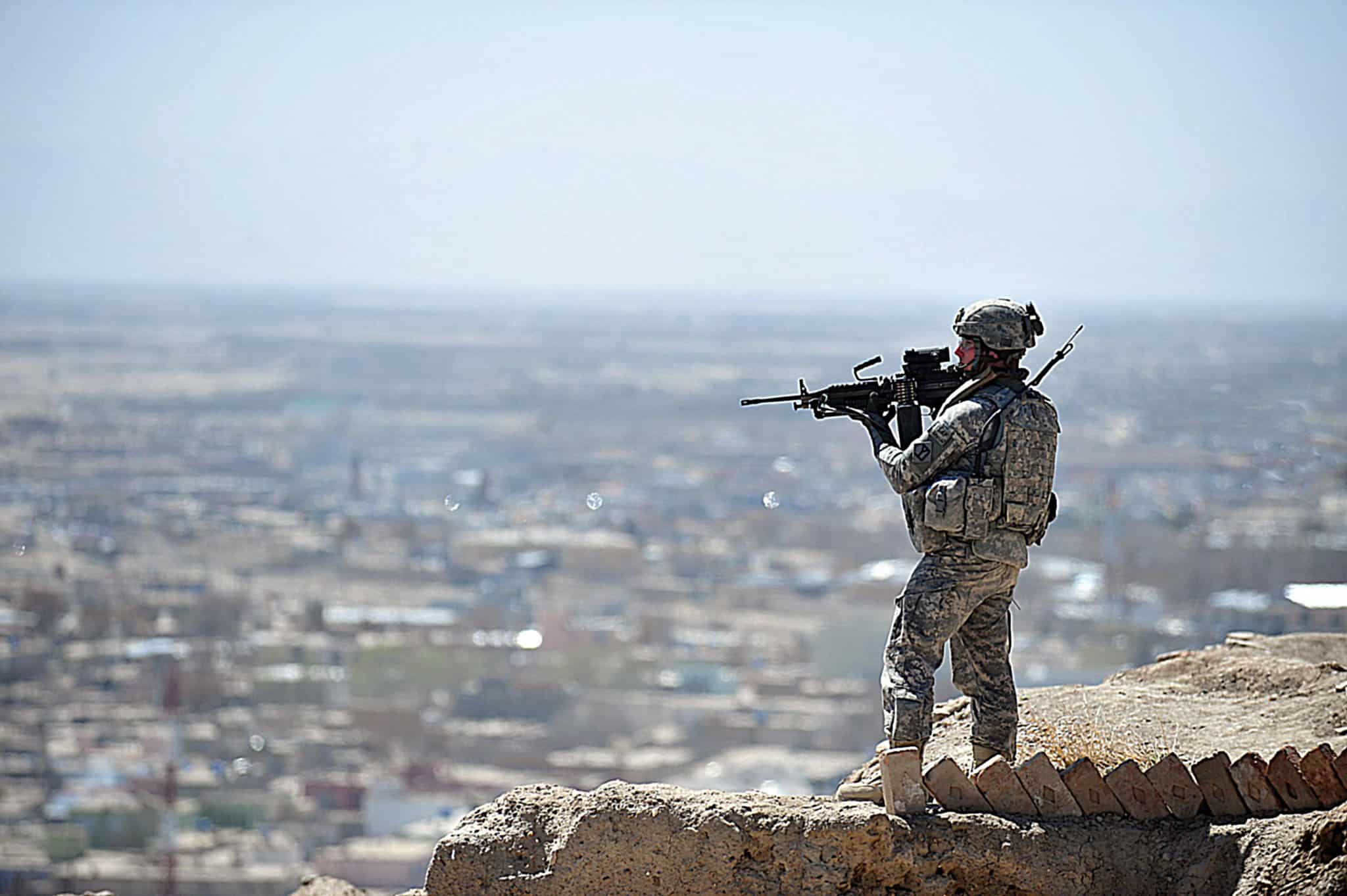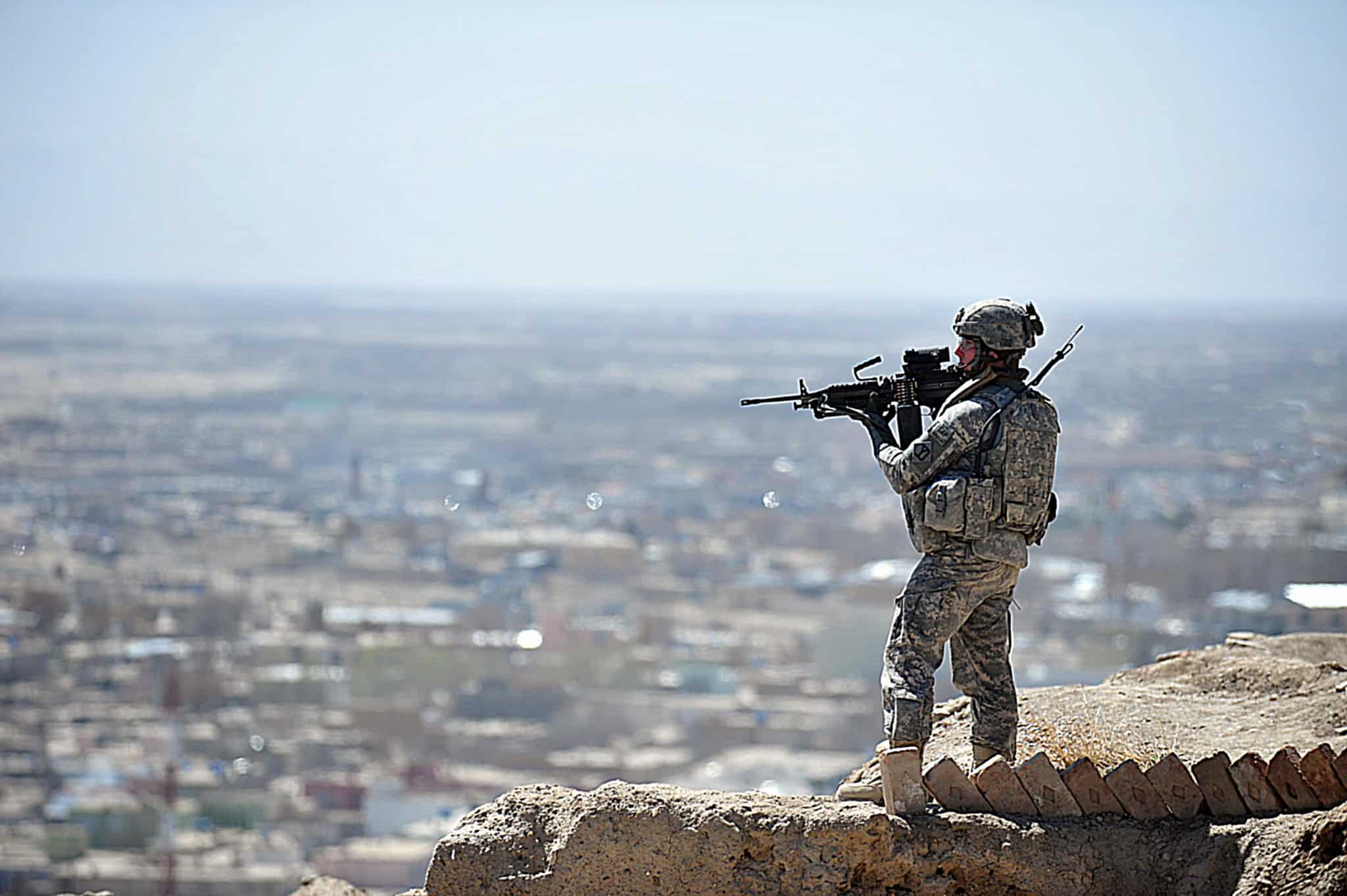
The US President Donald Trump’s remarks at the Oval Office in the White House on August 20 regarding the Afghan peace talks and related issues exuded an overall sense of satisfaction that the “endless war” is finally ending —although issues still remain to be sorted out before the deal is closed.
This was also Trump’s first public assessment of the meeting he took last week with top officials, including the secretaries of state and defence, CIA director and US special representative on Afghanistan Ambassador Zalmay Khalilzad who leads the American team of negotiators at the Doha talks with the Taliban.
Trump said more than once during his remarks to the media on Tuesday that the talks with the Taliban are going well, and he made it a point to acknowledge publicly that the Taliban genuinely want to stop fighting with the US troops. As he put it,
I will say this: The Taliban would like to stop fighting us. They would like to stop fighting us. They’ve lost a lot.
Trump threw light on what to expect. Clearly, the status quo is untenable and Trump intends to withdraw troops. But he is also convinced that the US should “always have somebody there.” Trump left it vague. Is Eric Prince preparing to walk in through that door?
On the other hand, Trump didn’t mince words about the US having a a strong intelligence presence in Afghanistan. That is because, as he put it, “Nobody can be trusted. Nobody can be trusted. In my world — in this world, I think nobody can be trusted.”
Trump has bought into the US military and security establishment’s plea that for ensuring that 9/11 type attacks do not repeat, a total American withdrawal from Afghanistan will be far too risky.
Interestingly, Trump taunted Russia (or any other country) to try to replace the US and NATO in Afghanistan, the graveyard of empires. He flagged that USSR shrunk to Russian Federation following its Afghan intervention. That was the nearest Trump came to admitting that the Afghan war cannot be won.
Significantly, in Trump’s estimation, Taliban does have the capability to prevent Afghanistan becoming a revolving door for international terrorists if it has the political desire to ply such a role. He seemed to imply that a peace deal that accommodates Taliban’s interests and concerns could incentivise the latter to be an ally in the fight against terrorism.
Trump never once disparagingly referred to the Taliban. On the contrary, Trump feels no particular commitment anymore to protect the Ashraf Ghani government. He even let it be known that he could “understand” why the Taliban has no respect for the Afghan government.
Does this mean that Trump may pull the plug on Ghani’s set-up? Most certainly, Trump’s remarks suggest that the US is distancing itself from the Kabul government and is gravitating toward neutral middle ground in the Afghan fratricidal strife.
This works fine for the Taliban and Ghani’s political opponents who have been demanding an interim government. Equally, the tenor of Trump’s remarks would suggest that the US no longer makes a fetish of “Afghan-led, Afghan controlled” dialogue between the Taliban and the Ghani government.
Trump carefully sidestepped any reference to Pakistan. But it goes without saying that Pakistani role is of crucial importance to his efforts in the coming weeks to reach a final agreement with the Taliban.
Looking ahead, it is inevitable that the US’ dependency on Pakistan is only going to increase, given the long-term American military and intelligence presence in Afghanistan and the imperative need to preserve good US-Taliban equations at the working level to counter terrorist threats.
Clearly, in Trump’s scheme of things, the US can learn to live with a Taliban government in Afghanistan.
In this backdrop of a US-Pakistan-Taliban triangle taking shape on the Afghan political chessboard, Pakistan is the big winner. No doubt, Pakistan will go the whole hog to instal a friendly government in Kabul. The US is unlikely to put roadblocks.
Conceivably, Pakistan’s agenda includes a settlement of the Durand Line question. The US and western allies as well as China and Russia (and Iran) will be supportive of the resolution of the dispute over Durand Line, without which the lawless Pakistan-Afghan border regions would continue to be a sanctuary for terrorist groups.
Pakistan can hope to leverage the preponderant hold of the Taliban in the southern and eastern provinces of Afghanistan. In turn, friendly, cooperative local governments in the Afghan border regions can be a factor of stability.
All in all, a favourable situation is at hand for Pakistan for the first time since independence in 1947. A big improvement in Pakistan’s internal security situation can be expected once a friendly government in Kabul stops promoting cross-border terrorism.
While big-power rivalries are a fact of life in world politics, the great game also allows convergence of interests between protagonists. The chances of China or Russia torpedoing the implementation of an Afghan peace settlement piloted and negotiated by the US under Trump’s watch are virtually zero.
In fact, Trump expressed no misgivings whatsoever on that score. On the other hand, the US is well aware that both China and Russia have direct links to the Taliban. The bottom line is that Afghanistan’s stabilisation is in everyone’s interests. Trump’s optimism is well-grounded that the endless war in Afghanistan is actually ending.
Reprinted with permission from Indian Punchline.

